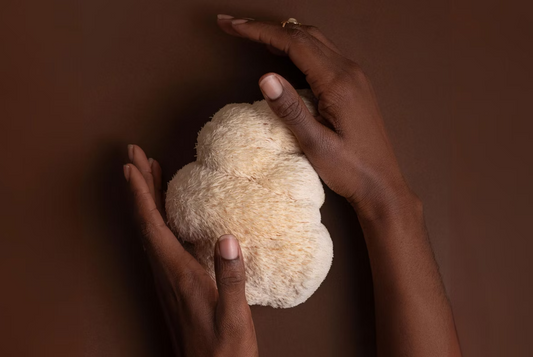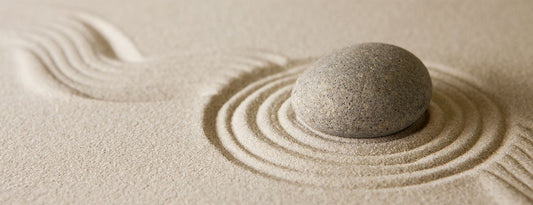Exploring the coffee conundrum
Ah, coffee. The glorious elixir that jumpstarts mornings and fuels creativity. But for those suffering from Irritable Bowel Syndrome (IBS), that beloved brew can morph into a (literal) belly-ache. So, the burning question prevails:
Is coffee bad for IBS? This question is more complex than it seems. For many, coffee is an indispensable part of their morning routine, but its relationship with IBS is a tad controversial. Let's dive into the evidence and explore whether your beloved cup of joe is a friend or foe.
Can coffee cause IBS or trigger symptoms?
First, let's clarify, coffee doesn’t cause IBS. IBS is a chronic condition involving the large intestine, with symptoms such as cramping, abdominal pain, bloating, gas, and diarrhoea or constipation. The exact cause of IBS remains unknown, though it's been linked to things like food passing through your gut too quickly or too slowly, oversensitive nerves in your gut, stress and a family history of IBS.1
But, before you whizz off and order a flat white, we do know that, unfortunately coffee can trigger IBS symptoms in some people. Here’s why:
- It’s a well-known stimulant, and with caffeine as its main active ingredient, can increase gut motility (fancy word for movement). This means it can speed up the contractions in your digestive tract, potentially leading to diarrhoea, one of the common symptoms of IBS.
- Additionally, coffee is acidic, which can irritate the stomach lining and lead to discomfort.
- I can cause gut microbiome mayhem: A 2021 study suggests that high caffeine intake might alter the gut microbiome, which is the community of bacteria in your gut. This could potentially contribute to IBS symptoms.2
Coffee and IBS bloating
Bloating can be a particularly troublesome symptom for those with IBS, but the relationship between the two isn’t straightforward. For some, the acidity in coffee might fuel bloating by stimulating gastric secretions leading to increased gas production and discomfort.
On the flip side, the ritual of drinking coffee can be soothing for others, and even potentially reduce stress-related IBS symptoms. In essence, the effect of coffee on bloating and other IBS symptoms is very much down to the individual.
Is decaf coffee ok for IBS?
If caffeine is the primary culprit, you might be asking yourself whether decaf coffee is therefore okay to drink? Of course, decaffeinated coffee has significantly less caffeine, which might make it a better option for some people with IBS. However, it’s not just the caffeine in coffee that can trigger symptoms; the acidity and other compounds can also play a role.
Some studies suggest that even decaf coffee can stimulate the production of stomach acid and increase intestinal motility, albeit to a lesser extent than regular coffee. So decaf might be a gentler alternative, but be warned, it’s not completely free of potential IBS triggers.
Friend or Foe?
The best way to determine coffee's impact on your IBS is to keep an eye on your symptoms. Keep a food diary and note down your coffee intake along with any subsequent IBS flares. Some other tips are:
- Start small: If you tolerate coffee well, try a small cup in the morning and see how you fare.
- Temperature talk: Hot beverages can worsen IBS symptoms for some. Opt for iced coffee or try letting your coffee cool down a bit. Maybe a chilled latte is the answer.
- Mind the milk: Dairy can be a trigger for some with IBS. Experiment with plant-based milk alternatives like almond or oat milk or try black coffee to isolate the effects.
Beyond the bean: Alternatives to coffee for IBS Sufferers
If you find that coffee exacerbates your IBS symptoms, don’t fret. Exploring other hot drink options can be a game-changer. Here are some alternatives to coffee that will fuel your day while reducing the potential for digestive distress:
- Herbal Teas: Herbal teas like peppermint, chamomile, and ginger can soothe the digestive tract and reduce symptoms like bloating and cramping. Peppermint tea in particular can help to relax your intestinal muscles and ease cramps.
- Chicory Coffee: Made from the roasted roots of the chicory plant, chicory coffee is naturally caffeine-free and has a rich, coffee-like flavour. Chicory is high in inulin, a type of prebiotic fiber that can promote healthy gut bacteria. However, those with IBS should introduce it gradually, as high amounts of it can also cause bloating and gas in some individuals.
- Golden Milk: This turmeric-based drink is not only caffeine-free but also boasts anti-inflammatory properties and can be a delightful caffeine-free pick-me-up. Made with turmeric, ginger, cinnamon, and non-dairy milk, golden milk can be a sunny soothing alternative to coffee.
- Green Tea: While it does contain caffeine, green tea has less caffeine than coffee and is rich in antioxidants. It’s generally gentler on the stomach and can provide a milder pick-me-up.
- Mushroom Coffee Alternatives: Last but most definitely not least, we (obviously) love mushroom-based coffee alternatives. These blends are becoming increasingly popular for good reason. Using apoptogenic mushrooms like chaga, lion’s mane, and ashwagandha, these beverages can provide a comforting flavour, without the caffeine. They also offer a wealth of other potential health benefits, including anti-inflammatory properties that may help with IBS symptoms. While research is ongoing, some people with IBS usually find this gentler on their stomachs. (Hear what SoulBrew’s Founder Ash had to say about his personal experience here)
What’s the science saying?
To weigh up the evidence, let's turn to what the research and experts say. A study published in the American Journal of Gastroenterology found that caffeine can increase colonic motor activity, which can lead to symptoms in sensitive individuals.3 Another study highlighted in the World Journal of Gastroenterology noted that while coffee can stimulate the digestive system, it affects individuals differently, and those with IBS might be more susceptible to its effects.4
Conclusion: To sip or not to sip?
So, going back to our starting question; is coffee bad for IBS? You’ll know by now that it’s not a simple answer. Coffee can indeed trigger IBS symptoms in some people because of its caffeine content, acidity, and other compounds that stimulate the digestive tract. But others can tolerate it well, especially in moderation or when choosing decaf.
If you suspect coffee is aggravating your IBS, consider reducing your intake or switching to an alternative like mushroom coffee substitutes (that are pretty great for many other reasons too!)
By listening to your gut, paying attention to how your body reacts and exploring the array of wonderful coffee alternatives out there, you can continue to enjoy your daily rituals without compromising your digestive health.
References:
- https://www.nhs.uk/conditions/irritable-bowel-syndrome-ibs/
- https://www.healthline.com/health/ibs/ibs-and-coffee#coffee-and-ibs
- American Journal of Gastroenterology: Impact of caffeine on colonic motor activity.
- World Journal of Gastroenterology: Effects of coffee on the digestive system.






